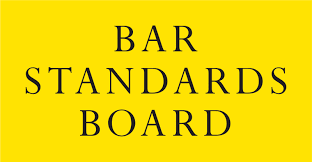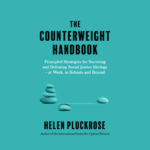Response to Bar Standards Board proposal to amend Core Duty 8
Recently, the Barrister Standards Board (BSB) published proposals to change one of its core duties pertaining to equality. The BSB is the regulatory body for barristers in England and Wales. It sets and enforces standards of professional conduct for the profession. The code of conduct, now called the ‘Handbook’, contains a mixture of general ‘core duties’ and more precise rules.
The proposed change to Core Duty 8 is to replace a duty to not discriminate unlawfully (a negative duty) to ‘You must act in a way that advances equality, diversity and inclusion.’
The BSB argues that the change is justified on grounds that the negative formulation is insufficient to change the culture and behaviour, which, it is asserted, is needed to prevent unlawful discrimination. The director general of the BSB, Mark Neale, says there are ‘practices which work against diversity and inclusion’ that need to be challenged. Sam Townend KC, the current head of the Bar Council, acknowledges the need for ‘an effective regulatory framework on EDI’ but says it must be ‘evidence-based’. We asked a barrister to comment on the proposal, you can read his thoughtful response below.
Any form of regulation is, by definition, a form of coercive power. It is unsafe for a duty to which a person is subject, and for which a person can face coercive consequences for breaching, to be defined in any other way than as clearly and precisely as possible. But the proposed Core Duty 8 gives no clue as to what specific behaviours will be treated as mandatory in any given situation for the purposes of promoting the policy objective of advancing equality, diversity and inclusion, and what specific behaviours (other than those already prohibited by the duty not unlawfully to discriminate) will be prohibited for failing to advance that policy objective.
Subjecting anyone to a duty whose content is ill-defined is, fundamentally, an unsafe form of exercise of any kind of coercive power. It gives rise to two distinct and serious forms of harm:
(1) The harm caused by the response to the risk created by the uncertainty – such as incurring a high cost in trying to work out what compliance would entail and doing costly, harmful things that are not, in fact, required for compliance, but which a person does because he/she believes that not doing them risks non-compliance; and
(2) the harm caused by the risks of abuses of the excessive level of power conferred on those doing the enforcing/interpreting of excessively imprecise rules.
Another problem with the proposed changes is that they place members under a duty to pursue a policy objective rather than conform to rules. The way in which they must pursue this objective is not specified. This is a form of trade-off obfuscation, as it is intended to absolve the body imposing the rules of responsibility for any of the difficult decisions involved in actually determining what the cost/benefit trade-offs are in any specific means of pursuing the objectives. The intention of this sort of ‘regulation’ is that the body imposing the rules obtains a political benefit from the policy outcome, but doesn’t bear the political cost of the trade-offs and costs inherent in any means of achieving this outcome. This is not a safe or appropriate exercise of coercive power under any circumstances.
This issue is not specific to the field of discrimination or equality, diversity and inclusion. It is a serious, persistent and growing problem among all forms of regulation. There is a fundamental conflict of interest inherent in permitting a single body to both make and enforce rules that constitute the exercise of coercive power over others. The inevitable consequence of the existence of such bodies is rules that coerce the people subject to those rules into serving the interests of the people who constitute the body making the rules with insufficient regard to cost to the public at large.
In the past, a regulatory body would have to expend its own budget, for which it is accountable, in proving that a person has breached a specific rule (and risk the embarrassment of this not being proven). Now, this new kind of rule requires the people subject to them to expend resources in proving to the regulatory body that they have complied with the rules (and, increasingly, the desired policy outcomes).
This is not specific to the Bar Standards Board: it is an inherent problem for all coercive ‘regulators’ of this sort. Such bodies are inherently unsafe. It is a fundamental and serious problem of modern forms of governance that any government has the power to create or maintain such bodies. This is why democratic societies subject to the rule of law traditionally require strict delimitations of power.
I do not think that the Bar Standards Board as currently constituted necessarily intends to pursue an extremist agenda by means of imposing these rules. I sit on a panel at the Bar Standards Board and otherwise interact with the body, and the views of those who constitute it are varied and often nuanced. Nonetheless, there is a real and serious danger that a future generation of people constituting the Bar Standards Board might use (or be pressured by outsiders, including a government or activists to use) rules of this sort in an abusive way, including to stifle dissent.
I also suspect that the people framing the rules have not explicitly tried to come up with rules to enable them to engage in trade-off obfuscation: rather, imposing rules of this sort will simply seem to be the path of least resistance towards doing something for which they will perceive some political reward. This is, in reality, how most abuse of power works in democracies: the people doing the abusing often simply see themselves as finding the path of least resistance to an outcome considered to be desirable. The problem is the fact of concentration of coercive power itself, not the specific body of people currently charged with exercising that power.
I also think that the consultation exposes a specific problem much subtler than the more obvious problems identified above. The proposal appears to assume that all or most bullying and harassment in the profession is related to protected characteristics. From my own experience in previous sets of chambers, this is not the case: a significant proportion of bullying and harassment is aimed at securing economic advantage rather than being based on group prejudice. (That is not to say that group prejudice based bullying and harassment does not exist nor that it is not significant; but it is certainly not the only kind).
In assuming (or at least appearing to assume) that the only response to bullying and harassment is to promote equality and diversity among people with differing protected characteristics, the BSB is likely to fail to address bullying and harassment that is unconnected to protected characteristics, causing significant harm. To this extent it will fail to meet its own desired aim of reducing bullying and harassment.


